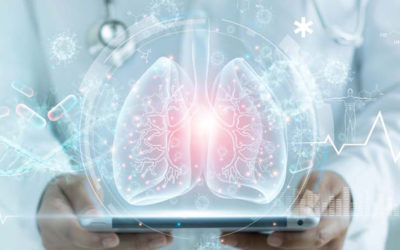Pulmonary Function Tests (PFTs)
Considering the average person takes about 23,000 breaths a day, any problems with the lungs can have a major impact on your health and life.
The experts at Gateway Regional Medical Center are here to help with a full range of care, including pulmonary function tests (PFTs). These simple, non-invasive exams measure how well your lungs work, so we can create a plan to help you breathe easy again.
About PFTs
Pulmonary function tests are a group of tests that assess your ability to breathe and how effective your lungs are in delivering oxygen to the rest of your body.
These tests are recommended for a variety of reasons, including:
- Part of a routine physical, especially if you smoke or have a history of smoking
- Part of a work physical, if you’re regularly exposed to certain substances
- To help diagnose lung conditions, such as asthma, chronic bronchitis or chronic obstructive pulmonary disease (COPD),
- To assess difficulty breathing from a respiratory infection or chest injury
- To determine if an existing lung disease is progressing or responding to treatment
- To check if you are having side effects from certain medicines that can affect breathing
- To test your lung function before surgery
Types of Tests
Depending on your specific needs, your pulmonologist at Gateway Regional Medical Center may perform one or a combination of pulmonary function tests, each using a specially fitted mouthpiece.
- Spirometry: Measures the amount of air you breathe in and out, and how fast. You’ll sit in front of a machine to do a number of breathing exercises. You may be asked to breathe in a medicine that helps relax the muscles around the airway, making it easier to exhale.
- Plethysmography test: Measures the amount of air you can hold in your lungs. You’ll sit or stand in a small booth for your breathing tests.
- Diffusion capacity test: Measures how well the oxygen in your lungs can move to the bloodstream. You’ll be asked to breathe in certain gases such as oxygen, helium or carbon dioxide.
- 6 Minute Walk Study: Tests aerobic exercise capacity, and allows the doctor to determine if more heart or lung tests are needed. To perform this test, you will be asked to walk at a normal pace for 6 minutes.
Recovery and Follow-Up Care
All PFTs are generally quick and safe for most people. Prior to your procedure, your doctor will provide special instructions and discuss any concerns. Your comfort is our priority – you will be closely monitored by our respiratory technologists during and after for dizziness, shortness of breath or any other problems.
If you have a history of lung or breathing difficulty, you may be tired after the tests. You’ll have the chance to rest afterwards until you’re comfortable enough to go home. Your doctor will also talk with you about your results and next steps for treatment, if needed.
Schedule a Consultation
Call 618-798-8405
Related Services and Conditions
COPD Treatment
If you’re living with chronic obstructive pulmonary disease (COPD), we know how hard it can be to breathe, let alone do the things you love. At Gateway Regional Medical Center, our lung health experts can help you starting feeling, and living, like you again. We offer...
Bronchoscopy
If you have a chronic cough, difficulty breathing or another persistent lung problem, it’s important to get the answers you need to take charge of your health. At Gateway Regional Medical Center, our skilled pulmonologists are here to help. We specialize in...
Pulmonary Services
The pulmonary and respiratory health services at specialize in the diagnosis and treatment of diseases impacting the lungs and respiratory tract. We focus on diagnosing, monitoring and treatment of all respiratory ailments. We care for...



